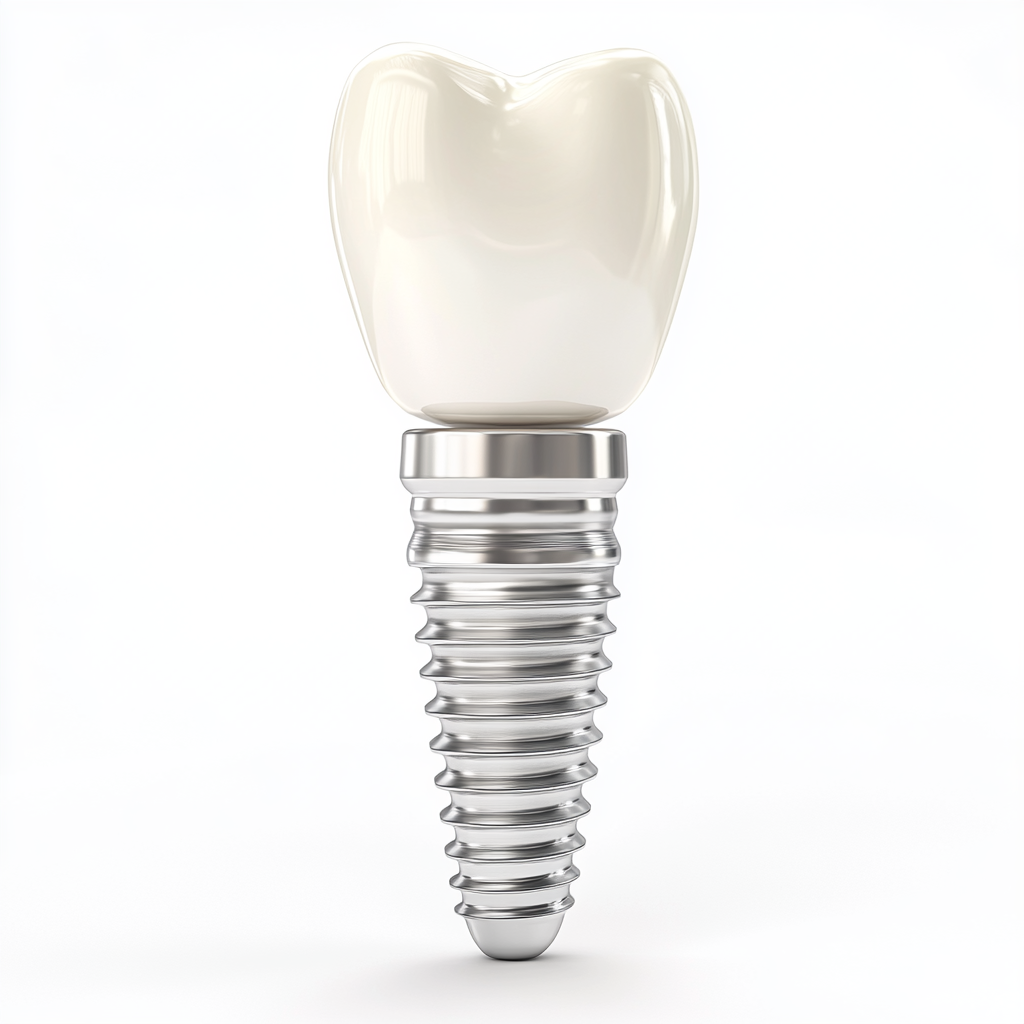Dental Implants in Atlanta
Restore Your Smile with Dental Implants – The Permanent Solution for Missing Teeth
Receive expert care and customized solutions for all your dental implant needs, including:
- Single Tooth Implants
- Implant-Supported Bridges
- Full Arch Implants
- Bone Grafting for Implants
- All-on-4® Implants
- Implant Maintenance and Care
What Are Dental Implants and Are They Right for You?
Dental implants are a permanent, effective way to replace missing teeth and restore your smile. Here's why implants are often the best choice for many patients:
What Are Dental Implants?
Dental implants are titanium posts that are surgically placed into the jawbone, providing a sturdy foundation for replacement teeth. They fuse with the bone to create a secure and long-lasting solution for missing teeth. Unlike dentures or bridges, implants function like your natural teeth, allowing you to eat, speak, and smile with confidence.
Why Choose Dental Implants?
Dental implants offer numerous advantages over other tooth replacement options. They prevent bone loss, maintain facial structure, and are incredibly durable. Implants do not require altering nearby teeth, which means they preserve your natural tooth structure. They are also comfortable, stable, and indistinguishable from natural teeth.
Types of Dental Implants
Depending on your needs and jawbone condition, you may be a candidate for one of several types of dental implants: Endosteal implants (placed directly in the bone), Subperiosteal implants (placed on top of the jawbone), or All-on-4 implants (supporting a full arch of teeth). Your dentist will determine the best option based on your unique situation.
Am I a Candidate for Dental Implants?
Not everyone is an immediate candidate for dental implants. You need to have healthy gums and enough bone structure to support the implant. If your jawbone has deteriorated, a bone graft may be necessary. People with certain conditions like uncontrolled diabetes or heavy smokers may need additional treatment or alternatives. [Learn more about bone grafting](#).
Understanding the Dental Implant Process
Getting a dental implant is a multi-step process that takes time to complete but yields permanent and reliable results. Here's what you can expect during each stage of treatment:
The Dental Implant Process: Step-by-Step
The dental implant process typically occurs in multiple stages. First, the implant is surgically placed into the jawbone, then allowed to heal and integrate with the bone (a process called osseointegration). Once healed, an abutment is placed on the implant, followed by a custom-made crown to complete the restoration.
Initial Consultation
During your first consultation, your dentist will evaluate your oral health and determine if you’re a good candidate for implants. This may include X-rays or a 3D scan of your jaw to assess bone structure and identify potential issues like gum disease.
Implant Placement
In this phase, the dental implant post is surgically placed into your jawbone. This procedure is typically done under local anesthesia and is designed to be as comfortable as possible. Post-procedure, the healing process begins as the implant integrates with the bone.
Healing and Crown Placement
Once the implant has fused with the bone, the next step is placing the abutment and then the custom-made crown. This crown will be created to match the shape, color, and size of your surrounding teeth for a natural look.
Long-Term Benefits of Dental Implants
- Durability: With proper care, dental implants can last a lifetime, making them a cost-effective, long-term solution for tooth loss.
- Improved Confidence: Implants allow you to speak, smile, and eat without worrying about discomfort or slippage.
- Preserved Bone Health: Implants prevent bone loss by stimulating the jawbone, maintaining facial structure and preventing the sunken appearance that can come with missing teeth.
- Enhanced Aesthetics: Implants look and feel like natural teeth, improving your smile and self-esteem.
- Functionality: Unlike removable dentures, dental implants provide full chewing power, allowing you to enjoy all types of food.
How to Care for Your Dental Implants
Dental implants require care just like your natural teeth. By following a proper oral hygiene routine, you can ensure that your implants last a lifetime.
Caring for Your Dental Implants
Proper care is essential to the longevity of your implants. Regular brushing, flossing, and routine checkups with your dentist will help keep your implants in excellent condition. Just like natural teeth, dental implants require good oral hygiene to prevent gum disease or infection.
Avoid Hard Foods
Although implants are strong, chewing ice, hard candies, or other tough objects can damage the crown or implant. Stick to softer foods during the healing process, and avoid habits like chewing on pens or fingernails.
Quit Smoking
Smoking can significantly impact the healing process and increase the likelihood of implant failure. If you smoke, it’s highly recommended that you quit before undergoing the implant procedure to ensure the best results.
Potential Risks and the Longevity of Dental Implants
Dental implants are a highly successful procedure, but like any surgery, there are potential risks. Understanding these risks and how to maintain your implants is key to long-term success:
Are There Risks with Dental Implants?
While dental implants have a high success rate, complications can occur. These may include infection, implant failure, or nerve damage. Your dentist will discuss these risks with you during your consultation to ensure you make an informed decision.
Implant Longevity
The longevity of your dental implants depends on several factors, including your oral hygiene habits and overall health. However, most implants last several decades with proper care, making them a durable and reliable solution for tooth replacement.
Regular Dental Visits
It’s important to see your dentist regularly for implant checkups and cleanings. Your dentist will monitor the condition of the implant and ensure that your surrounding gums and bone remain healthy.
Patient testimonials
Discover what our patients have to say about their dental implant experience.
"The implant process was much easier than I anticipated. I now have my smile back and couldn’t be happier."
Sarah
"After losing a tooth in an accident, I was nervous about getting an implant. The staff made me feel comfortable and walked me through every step."
Mark
"I had several implants done, and the results are amazing. They look and feel just like my natural teeth."
Jessica

